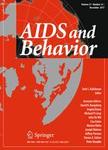版权所有:内蒙古大学图书馆 技术提供:维普资讯• 智图
内蒙古自治区呼和浩特市赛罕区大学西街235号 邮编: 010021

作者机构:Robert Koch Inst Dept Infect Dis Epidemiol Seestr 10 D-13353 Berlin Germany Deutsch Aidshilfe DAH Berlin Germany Freelance Sex Educator & Bodyworker Hamburg Germany Friedrich Schiller Univ Jena Dept Sociol Jena Germany Freelance architect trans activist antiracist acti Munich Germany Robert Koch Inst Dept Epidemiol & Hlth Monitoring Berlin Germany
出 版 物:《AIDS AND BEHAVIOR》 (AIDS Behav.)
年 卷 期:2025年第29卷第5期
页 面:1608-1618页
核心收录:
学科分类:0402[教育学-心理学(可授教育学、理学学位)] 1004[医学-公共卫生与预防医学(可授医学、理学学位)] 04[教育学]
主 题:Trans Non-binary HIV testing PrEP
摘 要:HIV testing and pre-exposure prophylaxis (PrEP) are recommended in Germany for individuals at increased HIV risk. However, data on HIV testing, PrEP use, and PrEP knowledge among trans and non-binary people are limited. We analysed data from the Sexuelle Gesundheit in trans und nicht-bin ren Communitys (TASG) study, a participatory study on HIV/STI and sexual health among trans and non-binary people in Germany. The study was designed, promoted, and analysed with active involvement of community members. Participants were invited to complete an anonymous online survey between 1 March and 1 July 2022. The outcomes included HIV testing within the last 5 years, PrEP use, and PrEP-specific knowledge. Predictors for HIV testing were identified using a bootstrap stepwise selection procedure. Among 2468 HIV-negative participants with information on potential HIV risks, 21.5% had potential needs for HIV testing and PrEP. Of these, only 44.3% (208/470, missing: 60) reported testing for HIV within the last 5 years. Older participants, those living in larger cities, and those with higher education levels were more likely to have tested for HIV. Additionally, only 8.3% (38/459, missing: 71) reported ever using PrEP. Among 451 participants with potential PrEP needs (missing: 79), only 57.4% knew at least one of three key PrEP-related facts at the time of the survey. Our findings highlight substantial gaps in HIV testing and prevention among trans and non-binary individuals in Germany with potential needs for these services. Reducing barriers to testing and prevention is essential to enable broader access to these critical services.